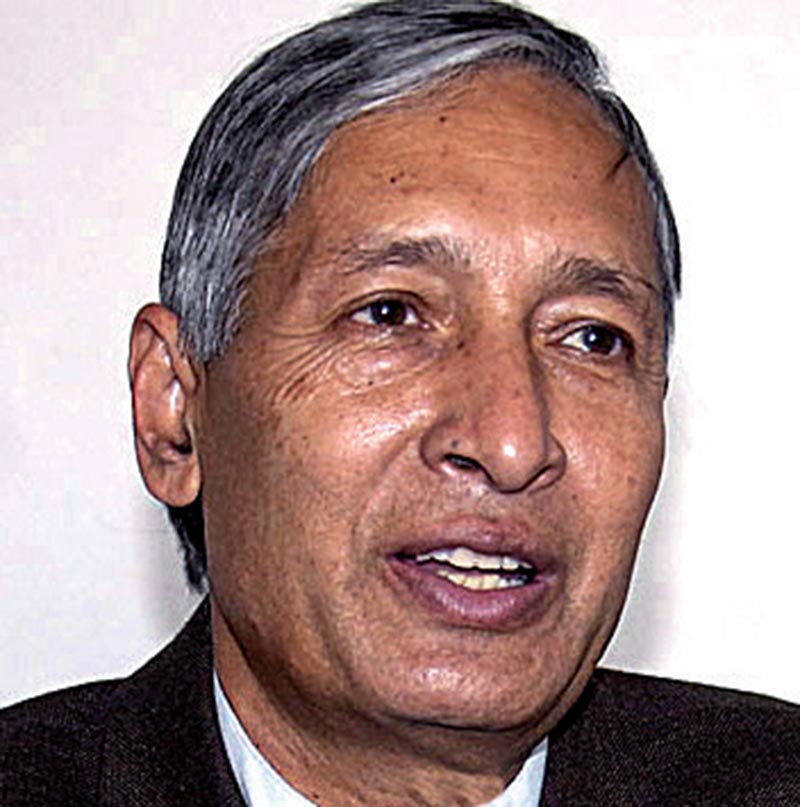New FinMin inherits a challenging economy
Kathmandu, February 26
The governments formed during the political transition had usually appointed non-economist finance ministers, who were largely unaware about the economic situation of the country. Consequently, they had a tough time providing proper guidance to the state actors on numerous economic issues. To make the matters worse, the frequent change in the government resulted in the government leadership appointing their ‘near and dear’ ones as finance minister for the benefit of the political party and to launch distributive programmes for populist competition. As a result, the country has had to suffer due to lack of proper economic policy interventions.
After Ram Sharan Mahat, who was the finance minister during the tenure of late Sushil Koirala, three non-economist finance ministers — Bishnu Paudel, Krishna Bahadur Mahara and Gyanendra Bahadur Karki — were appointed in the interval of two-and-a-half years. Prior to that, Babu Ram Bhattarai-led government had appointed Barsha Man Pun as the finance minister.
The Ministry of Finance has a pivotal role, as it is authorised to allocate resources and mobilise revenue. However, because of lack of a visionary and action-oriented leadership, the finance ministry has not been able to play an effective role in terms of policy intervention in the recent years.
Against this backdrop, the government of KP Sharma Oli today appointed Yubraj Khatiwada as the new finance minister.
Khatiwada, who had earlier served as the vice chairman of National Planning Commission and governor of Nepal Rastra Bank, has been recognised as a ‘practical economist’ and development planner, who has been involved in development planning and framing of economic policies since long. As the central bank governor, he is credited for his contribution in consolidation of financial institutions and maintaining discipline in the financial sector for its stability.
As per his specialisation, 62-year-old Khatiwada is monetary policy expert. However, he has a long experience in development planning as he has served as a member and vice chairman of the apex planning body several times.
Many believe that Khatiwada is inflexible and action-oriented person in terms of executing policies for the betterment of the economy. In his public speeches, Khatiwada has always spoken against speculations and middlemen. He has often expressed dissatisfaction at unnatural price rise of lands, which are ‘supposed to be used as means of production’.
As the governor of the central bank, he had also controlled margin lending to prevent the ‘unnatural growth’ of the stock market. Khatiwada has always been friendly towards the production sector and strict towards speculators.
After being appointed as the finance minister, Khatiwada urged his team at the finance ministry to be patient in the face of a looming ‘crisis’. By ‘crisis’, the finance minister was referring to the challenges in generation and efficient allocation of resources in the new administrative setup.
Khatiwada is in tight schedule to present the budget for next fiscal by the end of May, as per the provision of the Constitution and there are high expectations from the government, which has made promises of economic prosperity to the people.
The government has been raising domestic debt at the high interest rate to manage the expenses of federal government and also to ensure grant transfer to the local bodies.
Meanwhile, revenue mobilisation has been slow and is currently below the target. Growth of tax revenue is just 16 per cent. Also, the country has been facing balance of payment deficit along with retarded growth of remittances. On other hand, requirement of resources for setting up institutions at the lower layers of administration is high.
In the welcome ceremony, Finance Secretary Shankar Adhikari drew the attention of the newly appointed finance minister on the need for efficient allocation, ruthless actions to control the revenue leakages, along with a conducive environment to attract foreign and domestic investment in the production sector.
Khatiwada also unveiled his five-point guiding principles. He vowed to end the haphazard expenses from the public purse and introduce efficiency in public finance management. Stating that boosting productivity and job creation are the top priorities of the government, Khatiwada laid emphasis on utilising the available resources from the financial system to boost the productive sector. He urged the team of finance ministry to resolve the current challenges in the economy as ‘short-term’ problems.
He also urged the private and public investment to complement each other to spur economic growth and expressed commitment to make the Investment Board of Nepal more active to attract more investment into the country.
The finance minister also emphasised on the need of huge development assistance from the international community and multilateral development partners in the changed context. “The international assistance will be utilised to create coherence on trade and investment, technology transfer and labour market relations,” he said.






